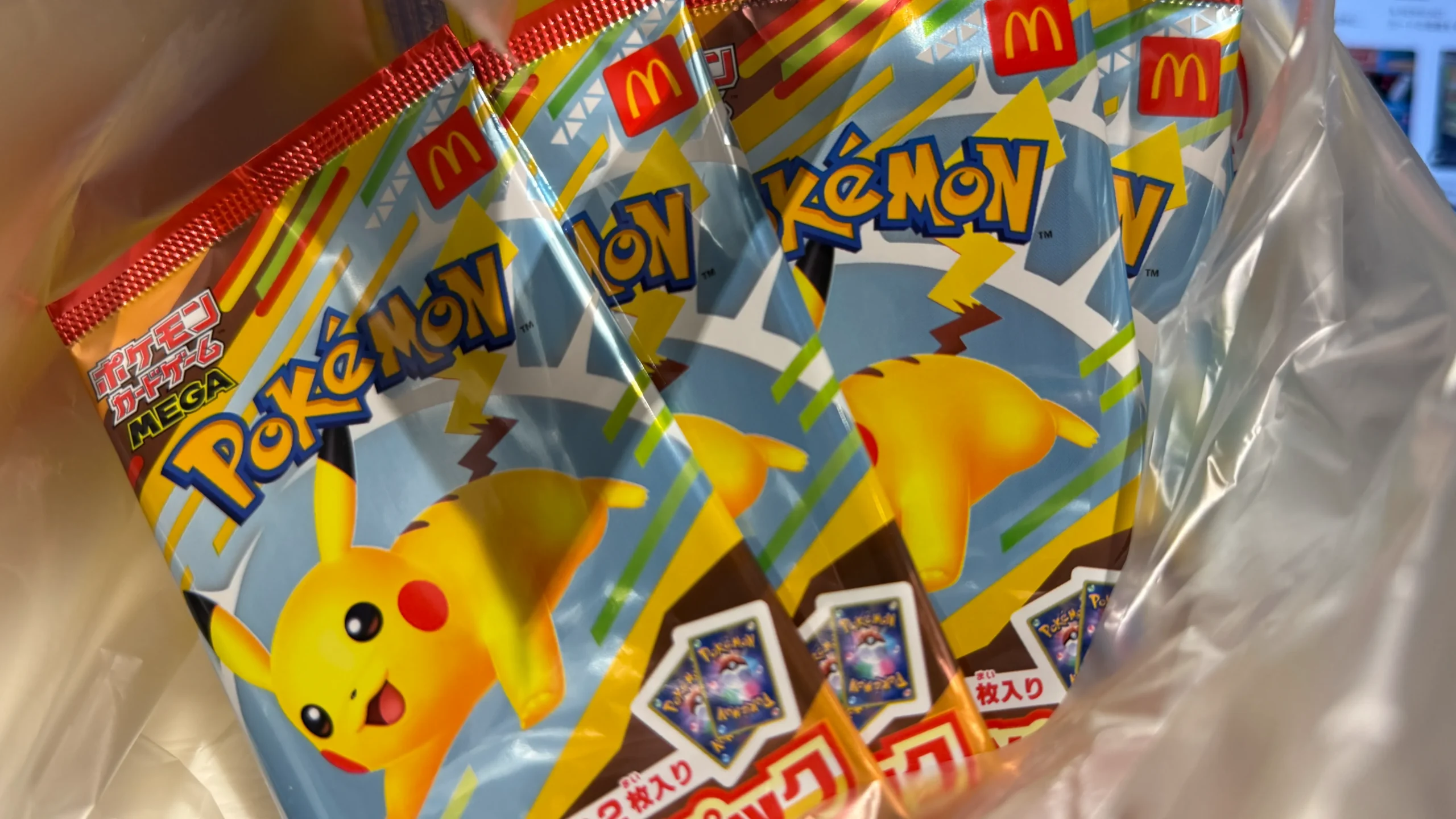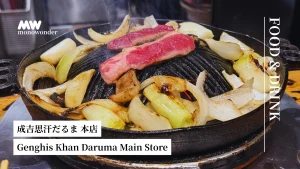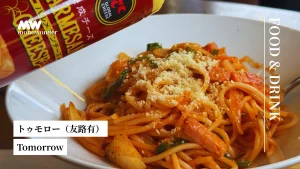In August 2025, McDonald’s Japan relaunched its Pokémon‑card “MEGA” Happy Meal after an 11-year hiatus. Launching August 8 across most locations, the campaign featured Mega‑Evolution toys and, from August 9–11, limited two-card Pokémon promos—driving early-morning crowds, social buzz, and a flurry of resale activity.
“MEGA” Happy Meal Overview
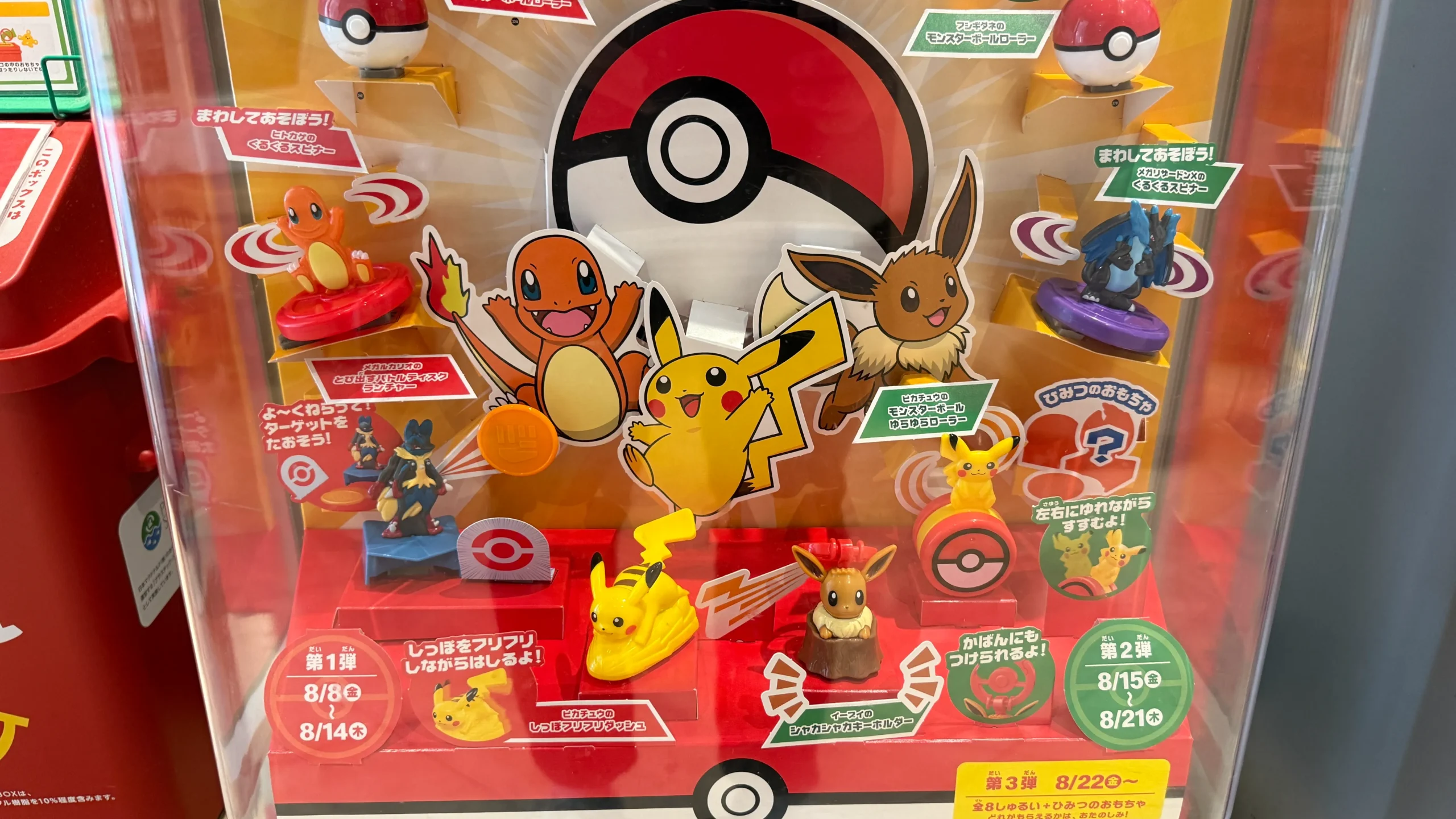
On August 8, 2025, McDonald’s Japan launched the highly anticipated “Pokémon (MEGA)” Happy Meal promotion. It ran for approximately three weeks nationwide (with limited exceptions) and featured a rotating toy lineup across three phases: Phase 1 (August 8–14), Phase 2 (August 15–21), and Phase 3 (from August 22 onward), with nine different toys—including a secret design—distributed randomly. The toys spotlighted Pokémon like Pikachu, Eevee, Charmander, Mega Lucario, and Mega Charizard X and were thoughtfully designed to promote active, imaginative play and the development of fine motor skills, based on collaboration with child development specialists.
During the weekend of August 9 to 11, each Happy Meal purchase came with a special two-card Pokémon card set: a uniquely illustrated Pikachu and one additional random card featuring Niwaoha (Sprigatito), Fuecoco, Quaxly, Ralts, or Riolu. The number of cards was limited, making the giveaway highly prized . To ensure fairness and deter reselling, McDonald’s implemented a purchase limit of five sets per person across the weekend and requested that buyers refrain from orders intended for resale or excessive quantity.
Comparison with Past Collaborations
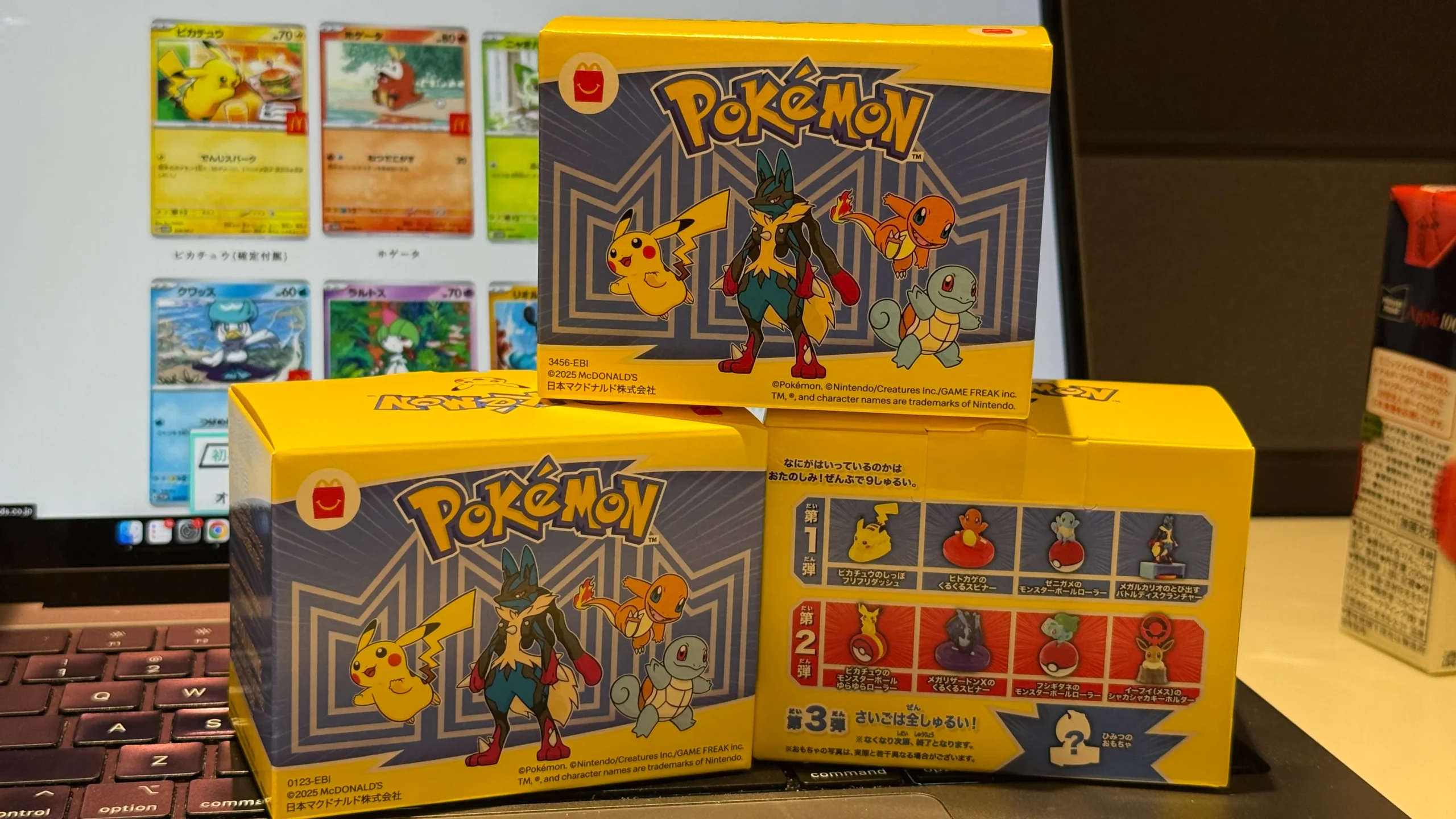
The previous Pokémon Happy Meal appearance dates back to 2014 with the XY card series, where each Happy Meal included a single card. At the time, popularity was moderate, but today those same cards fetch anywhere between ¥6,000 and ¥10,000 on resale platforms, signaling growing collector value over time.
The 2025 “MEGA” edition represents a significant evolution. Not only are the toys more elaborately designed and educational, but the weekend card giveaway adds an entirely new level of excitement and demand. McDonald’s also enhanced its launch strategy with more robust anti-resale measures and promotion via official channels, reflecting lessons learned over the past decade.
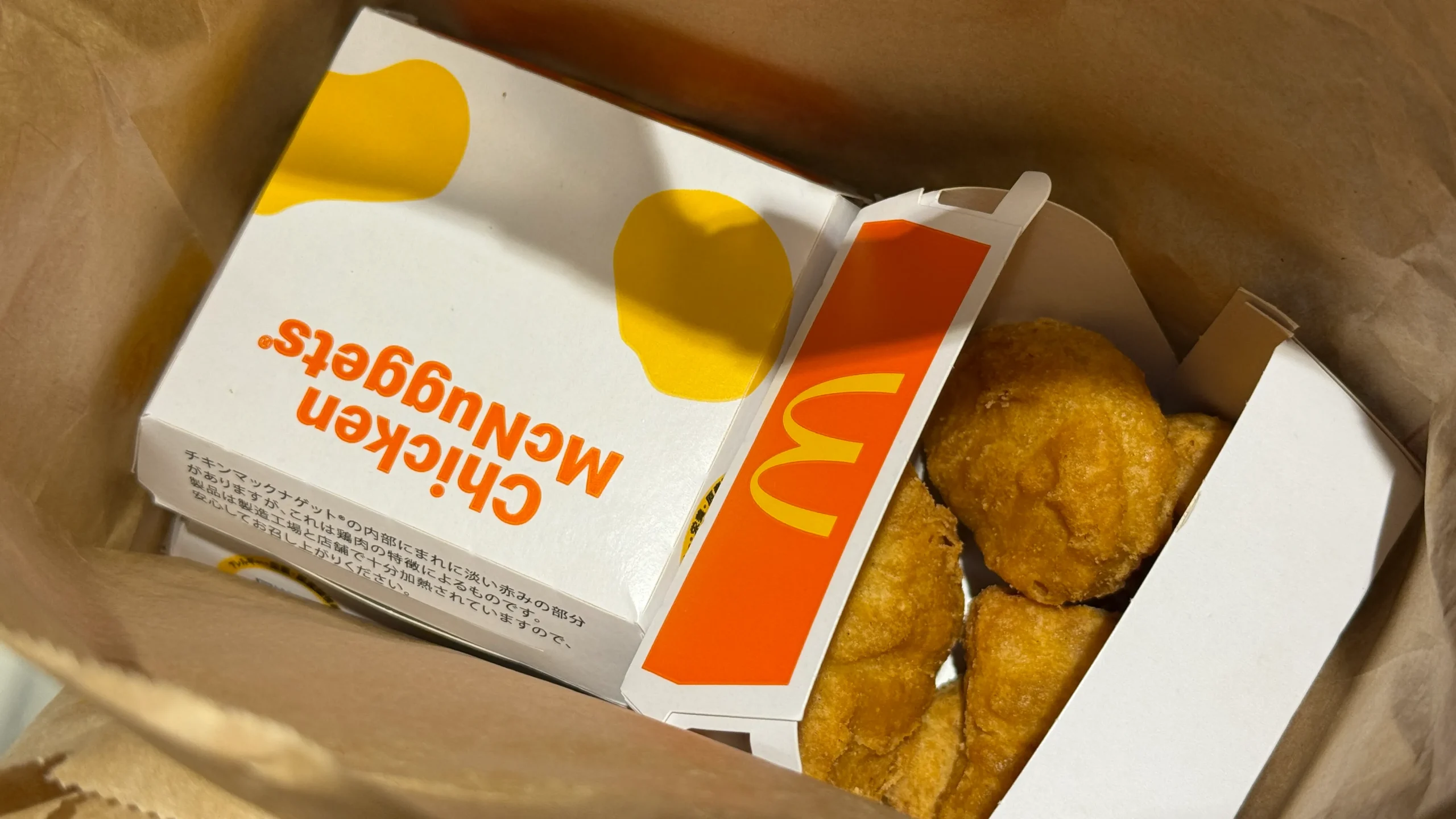
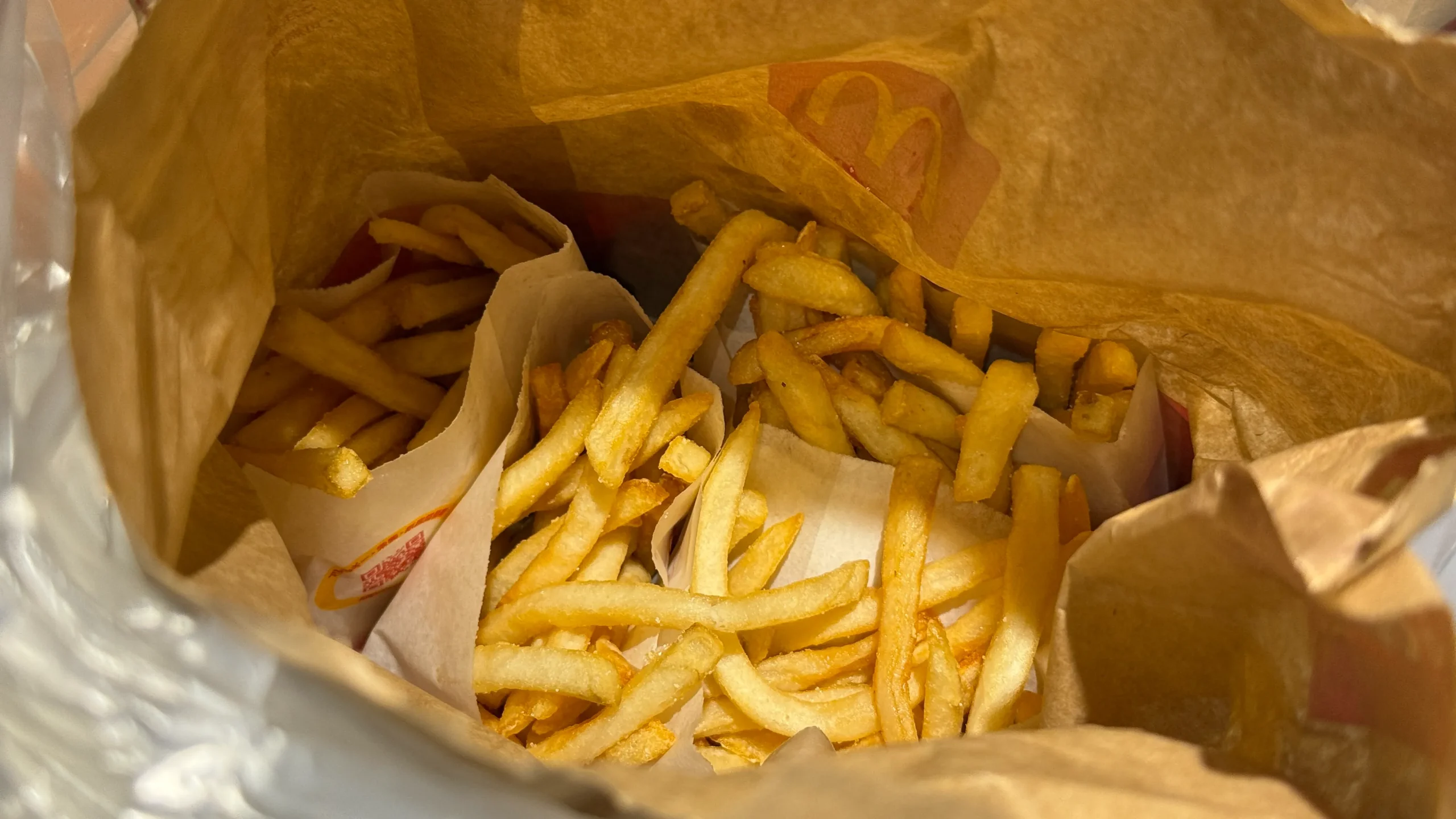
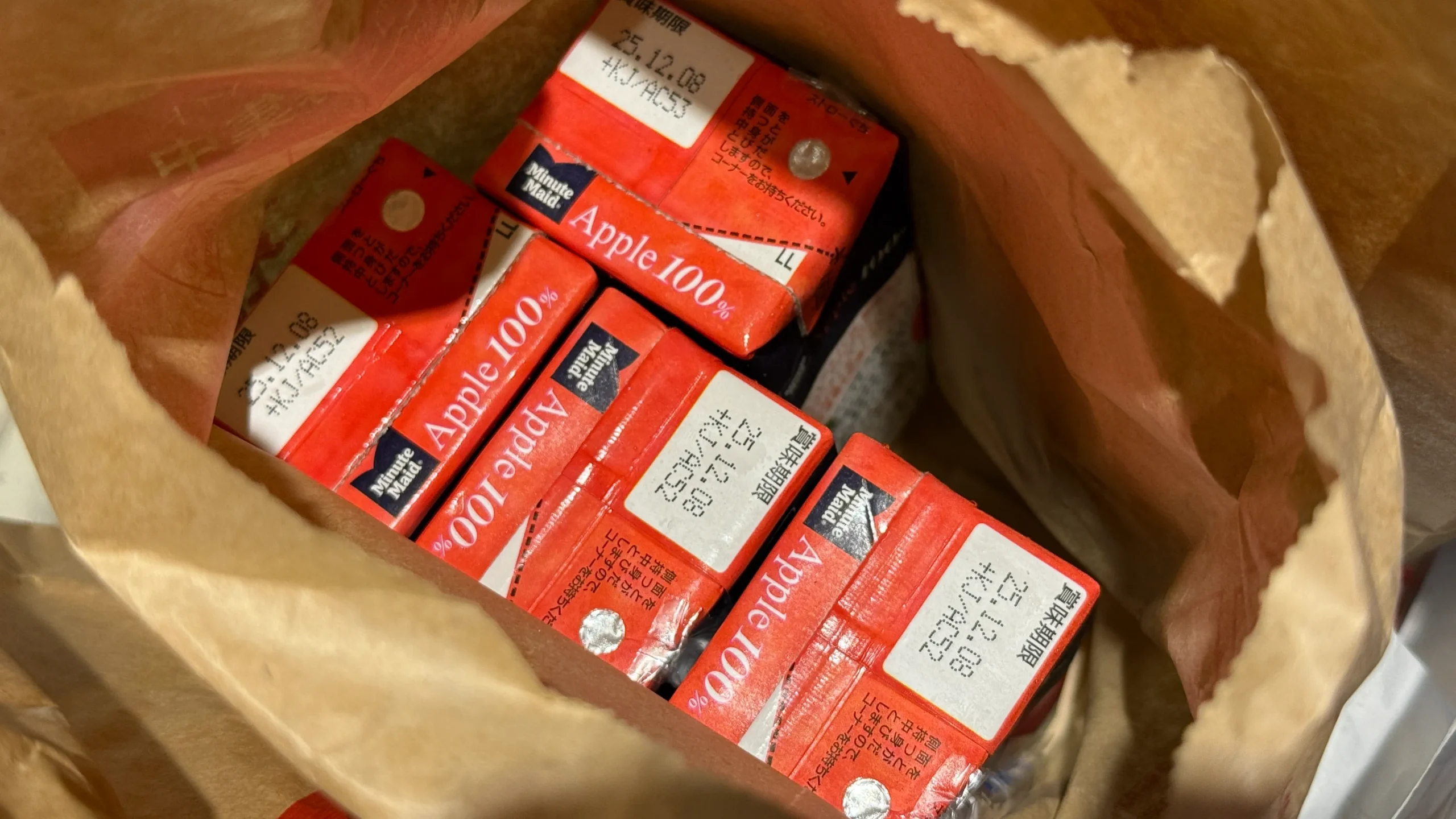
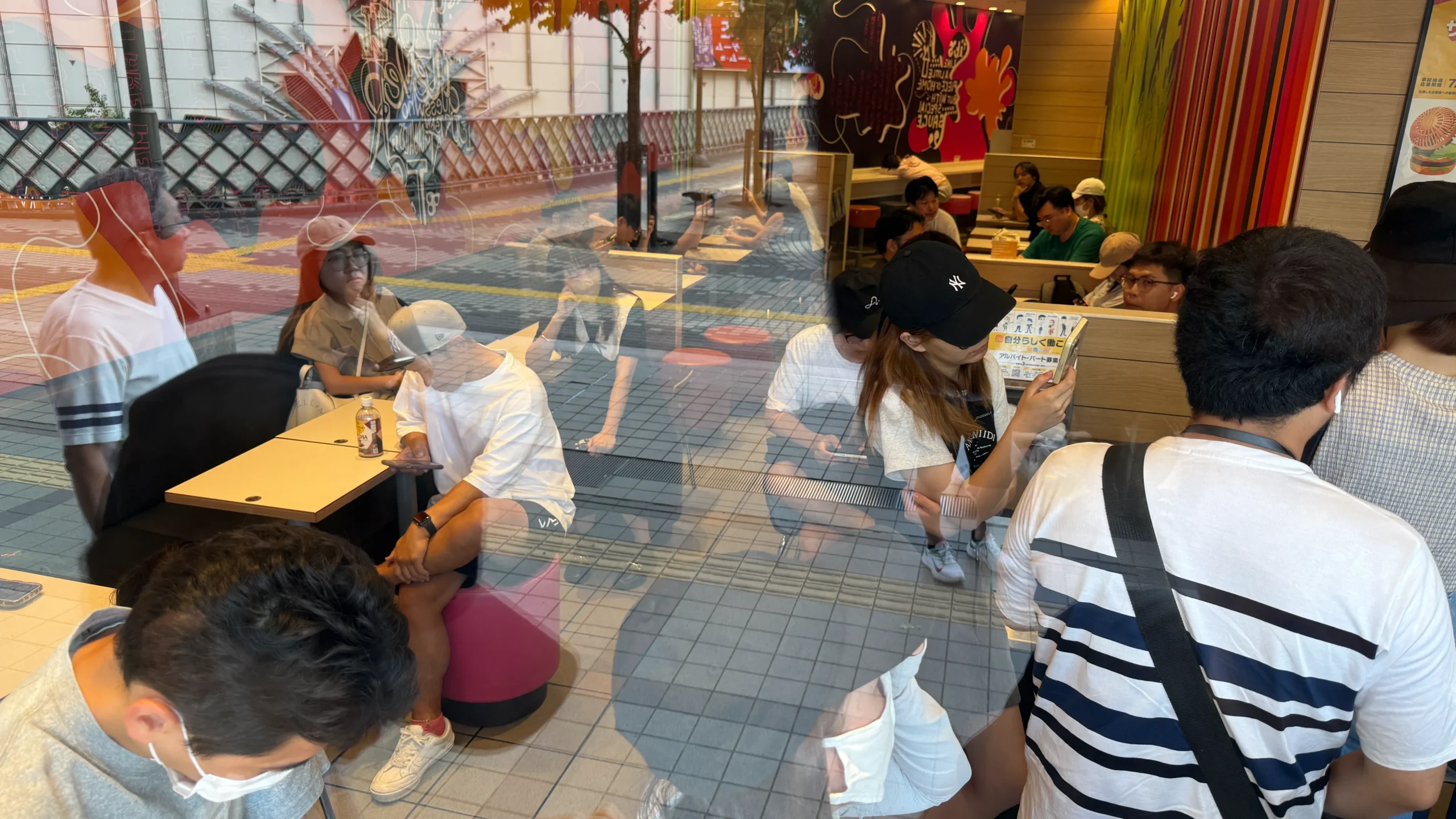
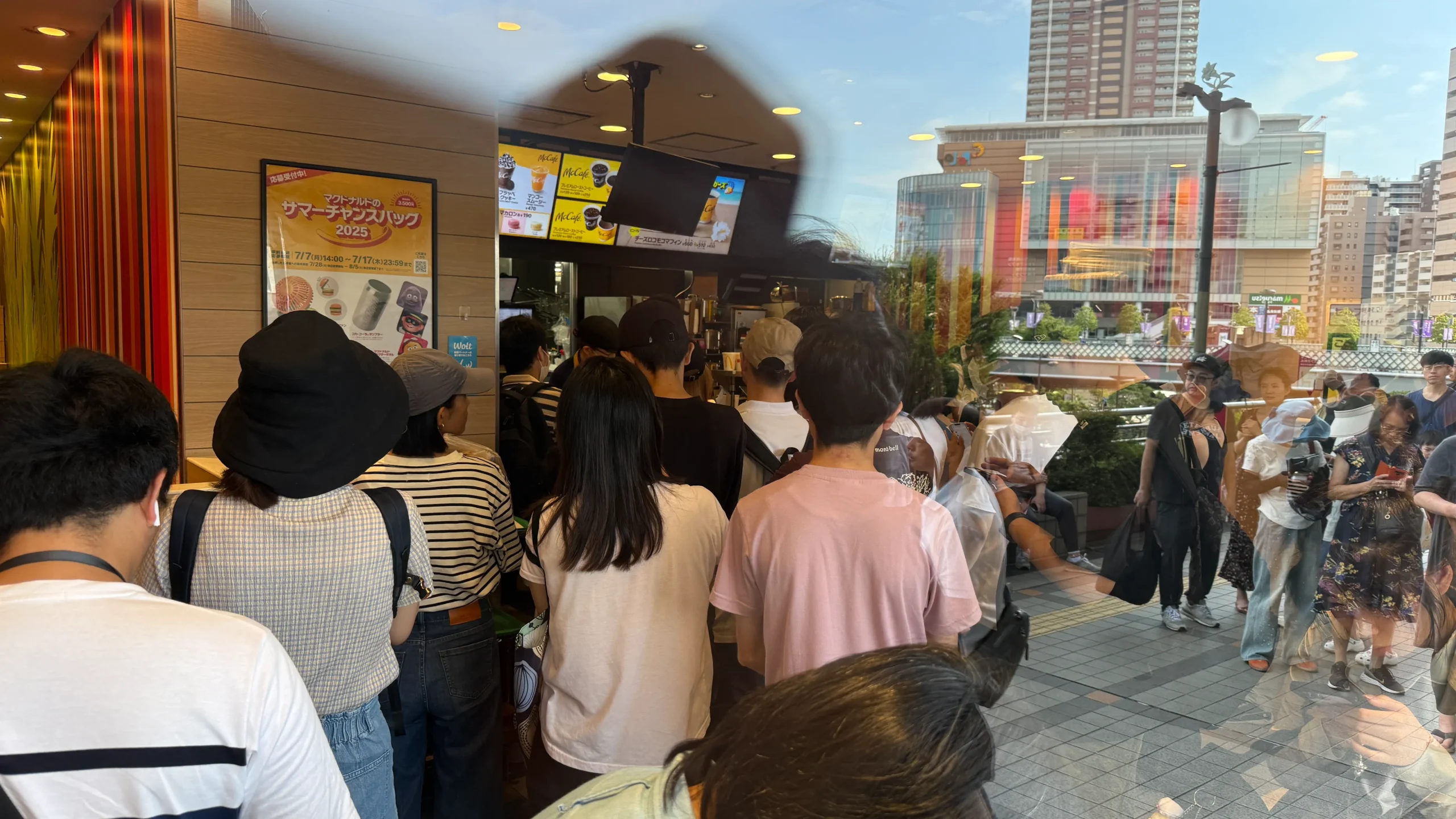
First-Day Crowds and Atmosphere
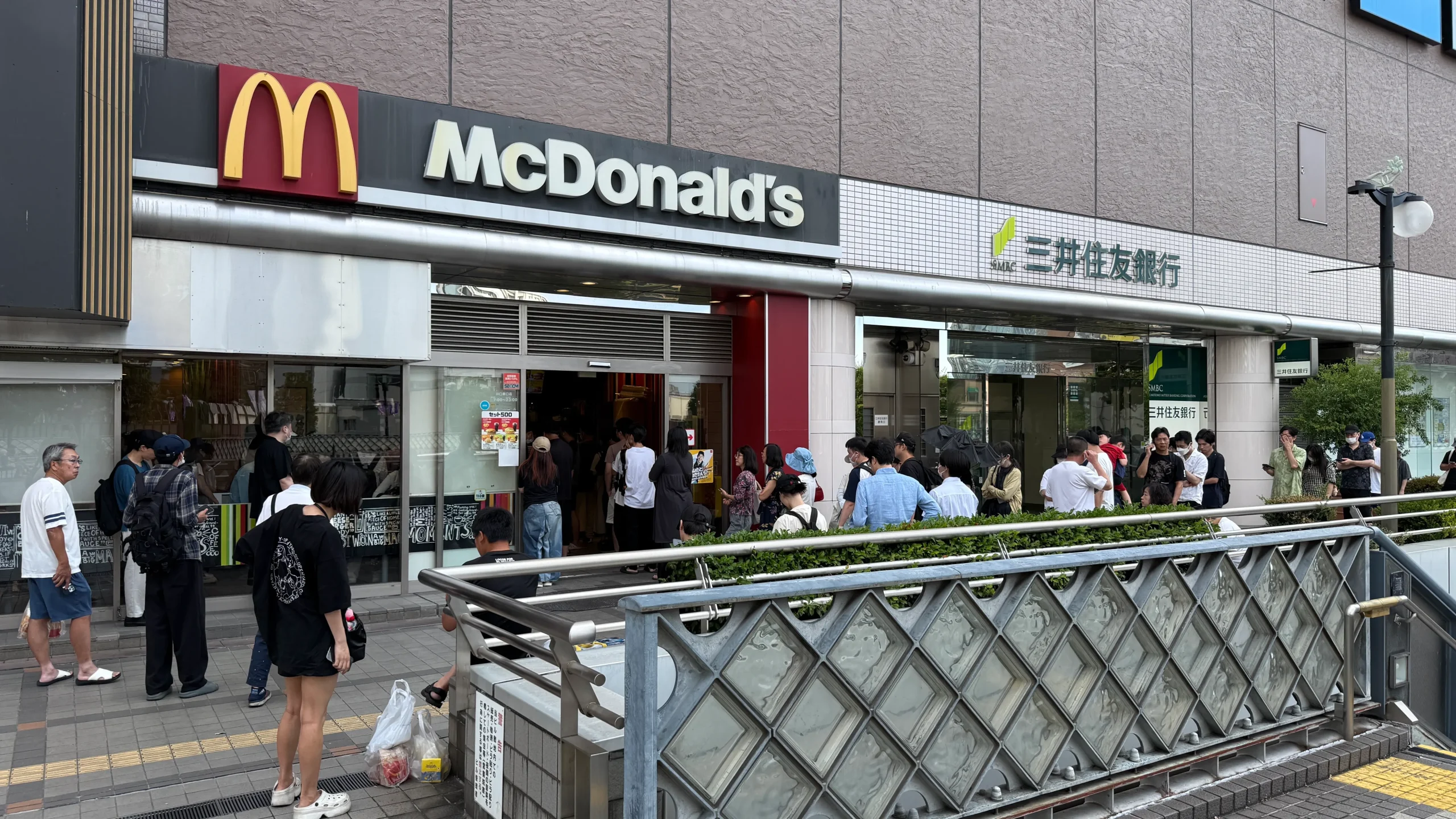
The launch generated a frenzy at stores across Japan. Reports and social media posts described early‑morning queues stretching for blocks. Some customers said they arrived at opening and waited over an hour just to place an order, then another hour to receive their meal. Anecdotes like “I lined up at 5 AM” and “there was Pokémon‑Happy‑meal traffic” proliferated online.
One Redditor reported:
“My Japanese fiancée waited over an hour in line starting at 8 AM and another 30 minutes inside. Scalpers showed up with entire families just to grab the cards.”
Even deliveries were affected, as drivers warned of heavy in-store congestion and delayed orders. In response, McDonald’s encouraged use of its app for pre-orders and stock-status checking to ease queues.
Resale Prices and Collector Value Outlook
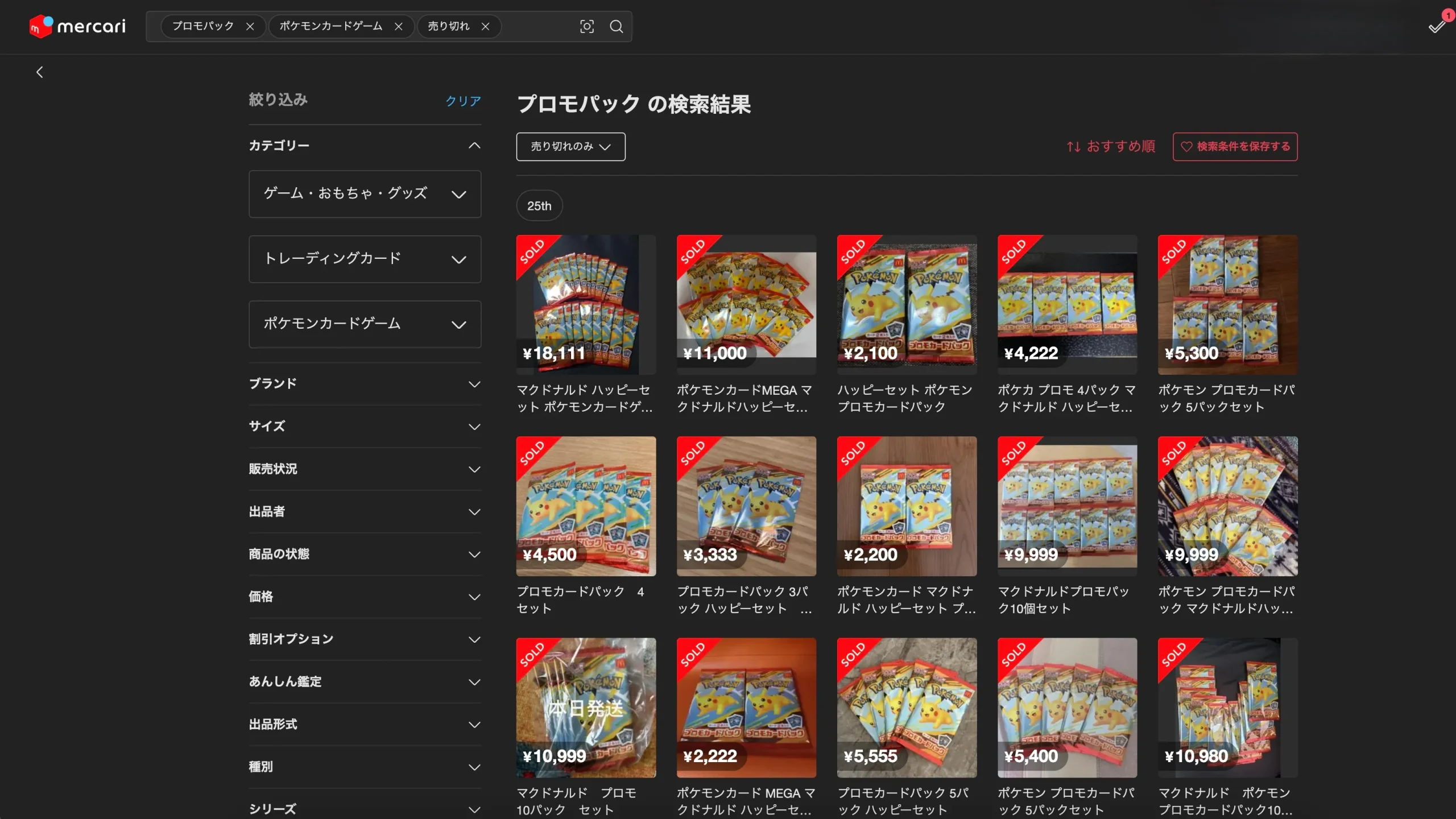
Not long after launch, resell listings began popping up online. Many units were already selling for several multiples of the original cost. Users shared listings advertising sets of 3 or 5 for several thousand yen—significantly above the ¥490 (or slightly higher) retail price    .
Collector interest focused mainly on the original‑art Pikachu card, followed by rare favorites like Riolu or Sprigatito. The unique artwork by popular illustrator Yuu Nishida added to demand . As resellers and collectors see it, unopened or mint-condition sets now represent potential long-term investments. Historical precedent shows similar promo cards continue appreciating over time if well maintained.
*The price had already risen to 12,000–15,000 yen by the second day, and all the cards were sold out at McDonald’s locations nationwide.
Looking Ahead—Future Expectations
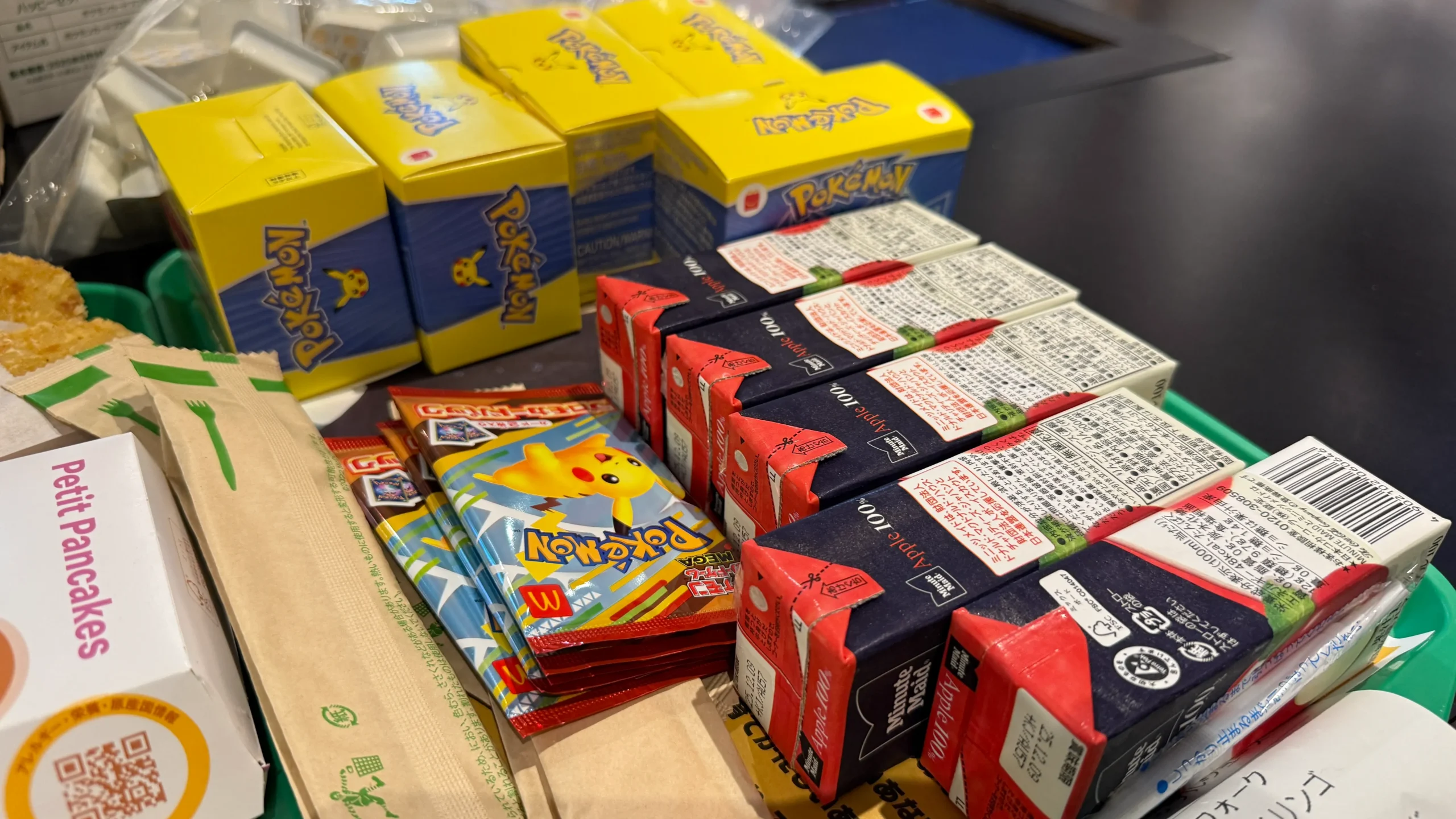
With the upcoming release of Pokémon Legends Z‑A on October 16, 2025 (Nintendo Switch), timed merchandise like this Happy Meal could become even more valuable and strategically significant for both brands.
Furthermore, the success of this campaign may inspire McDonald’s to pursue more “experiential promotions” that resonate with both kids and adult collectors—creating synergy between physical toys, in-store events, and digital campaigns. The community of fans who line up, trade, and share stories around such campaigns could play a role in sustaining Pokémon as a cultural phenomenon beyond its media properties.
Wonder Point
After an 11-year hiatus, McDonald’s Japan’s “Pokémon-card MEGA” Happy Meal brought back the magic of Pokémon with enhanced toy play, weekend-exclusive promo cards, and widespread excitement. Long queues, rapid sell-outs, and immediate resales highlighted the campaign’s success. Cards like the original-art Pikachu already command premium prices, and given collector trends, they may yet grow in value—particularly as Pokémon Legends Z-A launches later in the year. The collaboration demonstrates how nostalgic fandom and thoughtful design can combine to create a lasting impact. For fans and investors alike, this campaign isn’t just a fleeting promotion—it’s the start of a new chapter in Pokémon culture.
